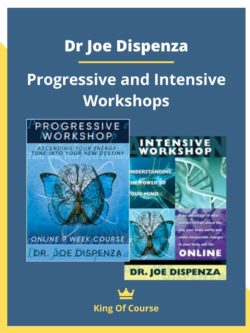Debunking Common Neuroscience Myths
Professor Sam Wang addresses widespread misconceptions with evidence-based neuroscience:
The 10% Brain Myth
Scientific evidence definitively proves we use our entire brain capacity. Brain imaging studies and neurological case studies demonstrate that brain damage anywhere causes functional deficits, disproving the persistent myth about unused brain potential.
Mozart Effect on Babies
Rigorous research shows classical music doesn’t enhance infant intelligence. Instead, actual musical instrument learning in older children provides measurable brain development benefits.
Gender Differences in Mood
Neuroscience studies reveal that men and women experience equal mood fluctuations, contradicting common stereotypes about gender and emotional regulation.
Brain Cell Loss in Aging
Contrary to popular belief, certain brain regions continue producing new neurons throughout life. While brain volume may decrease with age, neural plasticity and cognitive function can be maintained through proper strategies.
Practical Brain Optimization Strategies
Evidence-Based Learning Techniques
- Spaced repetition enhances long-term memory consolidation
- Sleep plays crucial roles in memory formation and skill acquisition
- Physical exercise provides the most effective brain training for cognitive enhancement
Circadian Rhythm Management
Understanding your brain’s biological clock helps combat jet lag through strategic light exposure and circadian rhythm reset techniques.
Stress and Performance Optimization
Learn how stress hormones affect brain function and discover neuroscience-backed methods for managing chronic stress while maintaining optimal cognitive performance.
Advanced Neuroscience Topics
Consciousness and Perception
Explore how your brain creates conscious experience from limited sensory input, including fascinating examples of perceptual illusions and unconscious processing.
Developmental Neuroscience
Track brain development from infant neural plasticity through adolescent brain maturation to aging neuroscience, understanding how neural circuits change across the lifespan.
Clinical Applications
Examine neuroscience approaches to understanding autism spectrum disorders, Alzheimer’s disease, depression, and other neurological conditions affecting everyday life.
Course Structure and Accessibility
“Sam Wang – Neuroscience of Everyday Life” consists of 36 comprehensive lectures designed for learners without prior neuroscience background. Each lecture combines:
- Cutting-edge research findings
- Real-world applications
- Visual demonstrations and brain imaging examples
- Practical strategies for brain health optimization
Course Delivery Options
- High-quality video lectures with downloadable content
- Comprehensive course guidebook (136 pages)
- Mobile app compatibility for flexible learning
- Scientific illustrations and brain imaging visualizations
Student Success Stories and Reviews
Verified course reviews highlight the transformative impact of Dr. Sam Wang’s teaching approach:
- “Outstanding series of lectures” – Glenn C. emphasizes the course’s exceptional graphics and educational value
- “Groundbreaking and life-changing” – Awakening describes how the lectures provided scientific understanding of mind function
- “Thorough but approachable presentation” – chhille39 praises Dr. Wang’s wide-ranging expertise and historical context
Why Choose This Neuroscience Course?
Unique Value Propositions
- World-class expertise from a Princeton University professor with proven research credentials
- Comprehensive coverage of everyday neuroscience applications
- Myth-busting approach based on rigorous scientific evidence
- Practical strategies for brain optimization and cognitive enhancement
- Accessible presentation requiring no prior scientific background
Target Audience Benefits
- Lifelong learners seeking scientific understanding of human behavior
- Professionals interested in evidence-based approaches to performance optimization
- Students exploring neuroscience careers or related fields
- Anyone curious about the scientific basis of consciousness, memory, and decision-making
Scientific Credibility and Research Foundation
Professor Wang’s course draws from peer-reviewed neuroscience research, clinical studies, and experimental evidence. Every claim is supported by scientific methodology and reproducible findings, ensuring learners receive accurate, current neuroscience knowledge.
The course content reflects cutting-edge discoveries in:
- Molecular neuroscience
- Cognitive neuroscience
- Developmental neuroscience
- Social neuroscience
- Clinical neuroscience applications
Conclusion: Transform Your Understanding of the Human Brain
Sam Wang – Neuroscience of Everyday Life represents the gold standard in accessible neuroscience education. Under the expert guidance of Princeton University’s Professor Sam Wang, learners gain scientifically-grounded insights into the neural mechanisms underlying human experience.
This course uniquely combines rigorous academic content with practical applications, debunking neuroscience myths while providing evidence-based strategies for brain optimization. Whether you’re seeking to understand memory formation, decision-making processes, emotional regulation, or cognitive development, Dr. Wang’s comprehensive approach ensures you’ll gain valuable, applicable knowledge.
The course’s distinguished instructor credentials, comprehensive content coverage, and proven student outcomes make it the definitive resource for understanding how neuroscience impacts everyday life. Join thousands of learners who have transformed their understanding of brain function through this award-winning educational experience.
Key Differentiators:
- Princeton University professor with 50+ publications and prestigious awards
- 36 comprehensive lectures covering complete neuroscience spectrum
- Evidence-based myth-busting of common brain misconceptions
- Practical optimization strategies backed by scientific research
- Accessible presentation for all educational backgrounds
- Proven track record with outstanding student reviews and learning outcomes

















Sam Wang – Neuroscience of Everyday Life
Course Overview: Understanding Your Brain’s Daily Operations
The Neuroscience of Everyday Life transforms complex brain science into accessible insights about human behavior, cognition, and experience. This comprehensive 36-lecture series explores how neural processes create the thoughts, emotions, and behaviors that define our daily existence.
Core Learning Objectives
Expert Instructor Profile: Professor Sam Wang, Ph.D.
Professor Sam Wang is a distinguished Princeton University neuroscientist who brings over two decades of groundbreaking research experience to “The Neuroscience of Everyday Life” course. As Associate Professor of Molecular Biology and Neuroscience at Princeton University, Dr. Wang has established himself as a leading authority in understanding how brain function influences daily human experiences.
Academic Credentials and Research Excellence
Distinguished Awards and Recognition
Dr. Wang’s expertise in neuroscience research has earned prestigious honors including:
Key Topics and Scientific Insights
Decision-Making and Free Will
Revolutionary neuroscience research reveals that our brains often commit to decisions before conscious awareness occurs. Dr. Wang explains the fascinating interplay between unconscious neural activity and our perception of choice, challenging traditional notions of free will in neuroscience.
Memory Systems and Learning
The course demystifies why you might forget car keys but remember driving skills through exploration of multiple memory systems:
Willpower as Measurable Brain Function
Willpower research demonstrates this trait operates like a finite mental resource. Dr. Wang provides practical strategies for strengthening willpower capacity, including the scientifically-proven technique of using your non-dominant hand for routine tasks.
Emotions and Social Neuroscience
Explore the neural basis of emotions, from the neurotransmitters controlling love (oxytocin and vasopressin) to the brain circuits generating humor and social bonding. Understanding emotional neuroscience provides insights into human relationships and social behavior.